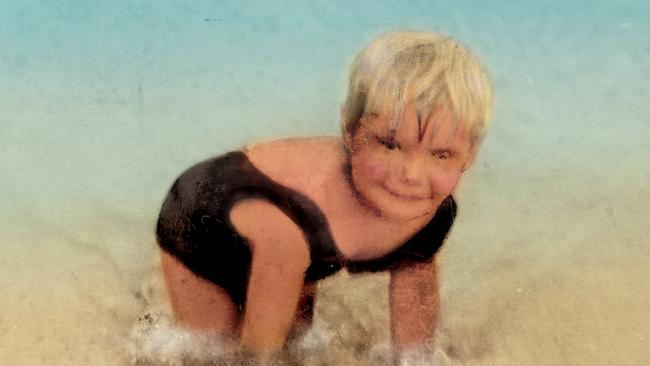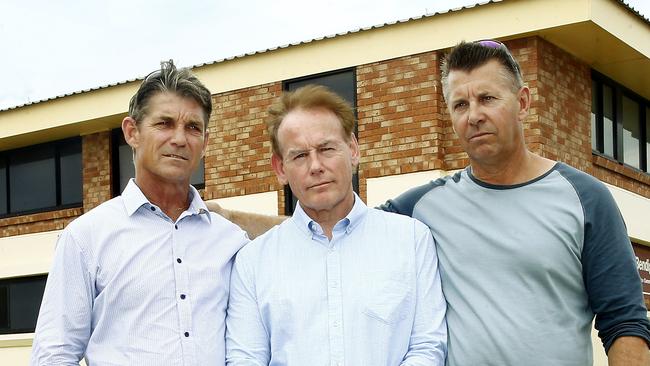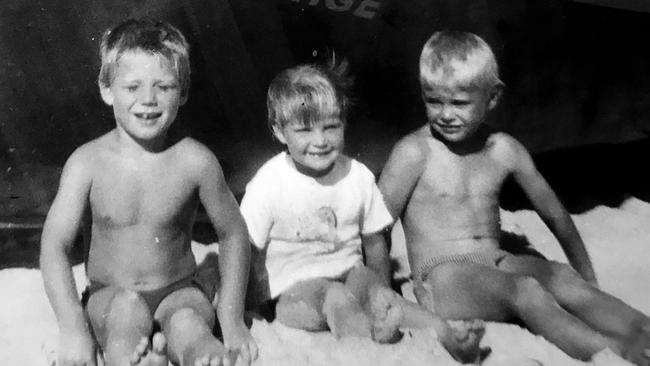Soft DPP quits Cheryl Grimmer cold case fight
The family of three-year-old child victim Cheryl Grimmer has slammed the state’s top prosecutor as “spineless” after he ruled out appealing the decision to drop charges over her 1970 murder.
NSW
Don't miss out on the headlines from NSW. Followed categories will be added to My News.
EXCLUSIVE: The family of three-year-old child victim Cheryl Grimmer has slammed the state’s top prosecutor as “spineless” after he ruled out appealing the decision to drop charges over her 1970 murder.
Attorney-General Mark Speakman has also demanded an explanation from the Director of Public Prosecutions Lloyd Babb SC, as The Daily Telegraph can reveal the shocking fresh evidence in the 48-year-old case that a jury will now never hear — including an eyewitness.

MORE NEWS:
Preethi seen on CCTV in lobby of ex-lover’s hotel
NRL Memes shut down after ex-star’s legal threat
Alleged dealer may have sourced drugs via ‘dark web’
Cheryl disappeared from a shower block at Wollongong’s Fairy Meadow beach about 1.30pm on January 12, 1970 and her body was never found.
A man, who was aged 15 at the time and cannot be named, was charged in 2017 with her murder.
Now aged 65, his trial stalled last month when the Supreme Court threw out the police interview with him in 1971 during which he confessed to her abduction, rape and murder.
Just 12 weeks before the trial was due to start, the court ruled his confession was inadmissable because, as a juvenile, he should have had an adult with him — even though that was not a legal requirement in 1971, nor required by police guidelines.
The DPP on Wednesday said there would be no appeal against the court’s decision despite the fact it had not yet received a submission being prepared by police, who argue the judge was wrong.
“I have asked the Director of Public Prosecutions for information about the decision not to appeal from the judgment of the Supreme Court,” Mr Speakman said.
He said the DPP would now be meeting with police.

Cheryl’s family are desperate for the case go to before a jury and one of her older brothers, Ricki Nash, said they were “furious”.
“The DPP is spineless to drop the case so quickly and not appealing,” Mr Nash, 55, said on Wednesday.
“They have ripped the heart out of our family.
“The cops are sure they have the right man. No one else would have known the level of detail in his statement and furthermore, the police did a great job corroborating what he said.”
The Daily Telegraph has obtained court documents that reveal how police tracked down a witness who picked the man out of a photo identification parade in 2017 and recalled his distinctive tattoo.
Another witness confirmed the man’s story that there was a steel cattle grid at the property where he said he had carried a gagged and bound Cheryl.
Detectives who recorded the man’s confession in 1971 had been unable to confirm his claim about the cattle grid but police who reinvestigated the cold case in 2016 believed the fresh evidence from the cattle grid witness was crucial in establishing the credibility of his confession.
In court last month, the man’s lawyers did not dispute what he said to police in 1971, but submitted it was a “false confession” from a disturbed teenager with mental problems who had been in and out of care and was vulnerable to suggestion.
As a juvenile at the time he can still not be named and was given the court alias “Mercury”.
Documents tendered to the Supreme Court show Mercury came to the notice of police 15 months after Cheryl’s disappearance while he was in a juvenile custody shelter, and told the manager he “had informed him that he was responsible for (Cheryl’s) murder”.
“Yes I am worried, I did that to the little girl, I didn’t mean to do it,” the man told the two detectives interviewing him in April 1971.
He told detectives he had seen some children come up from the beach and enter the changing rooms.
Cheryl and her brothers Ricki, then seven, Stephen, five, and Paul, four, had gone to the shower block as their late mother Carole, 26, packed up.
The man correctly described the girl’s swimsuit “came down the front with two straps over the shoulder” and said he saw her being lifted up by the torso to use the water bubbler.
He said he “grabbed her and put one hand over her mouth and carried her away”.
He said he took her up to Bulli Pass intending to have sex with her but when she started to scream, he put his hands around her throat and panicked when she died, putting dirt and bushes over her body.
In May 1971, he took police on a walk-through but where he said there had been a cattle grid and a small creek, the area had by then been bulldozed for housing.
In January 2017 a witness told police he remembered the cattle grid was still in place early in 1970 because he drove over it regularly while demolishing a farmhouse.
“He stated that the gate was made of tubular steel and that the track leading from the gate into the property crossed a small creek,” police told the Supreme Court in a submission.
“Those features were described by the accused in his 1971 walk-through.”
Another witness who had not previously been interviewed told police he recalled a little girl being lifted up to use the bubbler.

“Prior to that statement being made, no record of (an) eyewitness had ever disclosed that (she) was lifted up by the torso at the bubbler, as stated by the accused in his interview,” the police submission said.
Another man — interviewed in Tasmania — said that as a 10-year-old he remembered being at the beach that day and saw a man who had the distinctive tattoo on his upper right arm.
He picked a photograph of “Mercury” and three other men out of an ID parade of 20.
Police records showed Mercury had a tattoo on his left forearm, similar to the one described.
Arrested in 2017, the man said he had made a false confession in 1971 and had taken police to an area “at random and made up a story”.
He had been in custody for over two years and was released on February 15 after prosecutors told the Supreme Court they would no longer proceed with the case following Justice Robert Hulme’s ruling.
He has returned to his home in Victoria — just four kilometres from where Ricki Nash lives.
“The NSW Police Force is continuing to consider the court’s decision and is exploring its legal options,” a NSW Police spokesman said.
Mr Babb’s spokeswoman said the DPP would not be appealing the decision to exclude the 1971 police interview.
